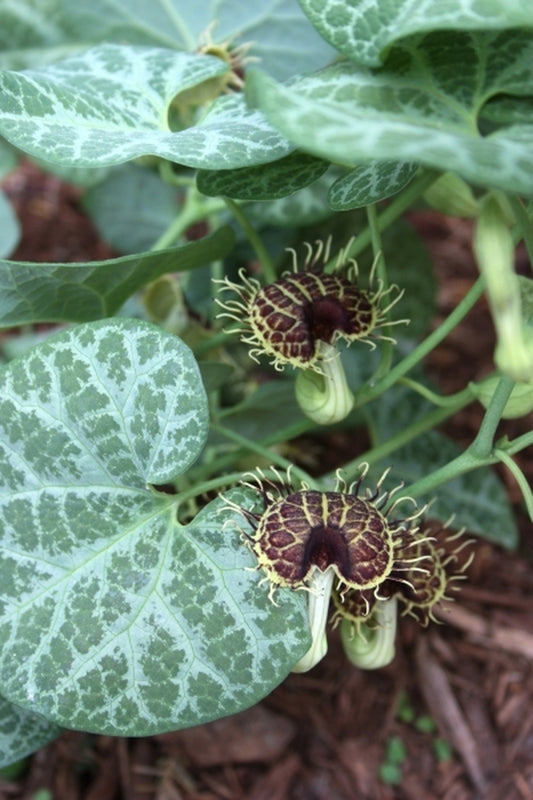Many of you are familiar with the exotic plant genus Aristolochia as butterfly garden vines with bizarre, albeit often hidden, flowers that are especially attractive to swallowtail butterflies.
-
Aristolochia fimbriata
Item #: 3031
Zones: 7a to 9b
Dormancy: Winter
Height: 6" tall
Culture: Sun to Light Shade
Origin: Argentina, Brazil
Pot Size: 3.5" pot (24 fl. oz/0.7 L)
Regular price $23.00Regular priceUnit price per
More Information About Aristolochia
Many of you are familiar with the exotic plant genus Aristolochia as butterfly garden vines with bizarre, albeit often hidden, flowers that are especially attractive to swallowtail butterflies. Aristolochia has been a popular perennial flowering plant since the Victorian times when porches all over England were covered by the vine. The genus Aristolochia is quite large with over 500 species and among those are some very nice hardy perennial plants with showy flowers.
If you have never seen an Aristolochia flower, then you are in for a real treat. The flowers of most of the species look a lot like a Dutch meerschaum pipe and can be quite colorful with combinations of white, purple and yellow. The shape of the Aristolochia flower also led to its other common name, birthwort, because it reportedly looks like a birth canal. According to the medieval philosophy, the Doctrine of Signatures, plants that looked like human body parts were believed to have utility as a medicine for that part of the body. In the case of Aristolochia, this is unfortunate because they are poisonous to humans and can cause severe kidney damage and death if ingested.
Aristolochia is easy to grow since it thrives in a wide variety of non-saturated soils. Where happy, Aristolochia will re-seed and provide you with plenty to share with friends and butterflies alike. Try combining Aristolochia with other butterfly plants such as asclepias and buddleia to make a butterfly buffet. When you are ready to buy aristolochia for your perennial garden, check out our online offering of aristolochia for sale.


